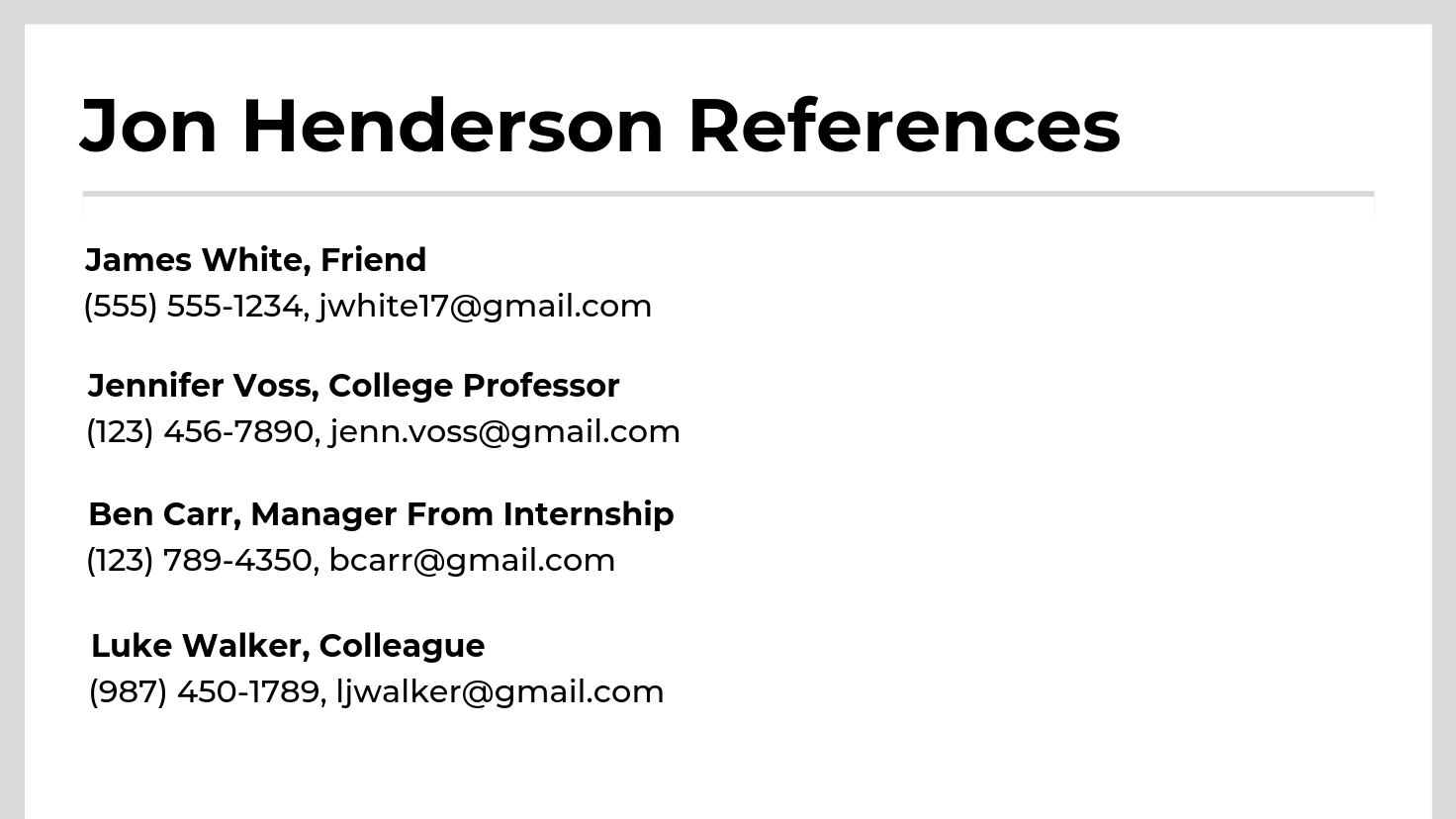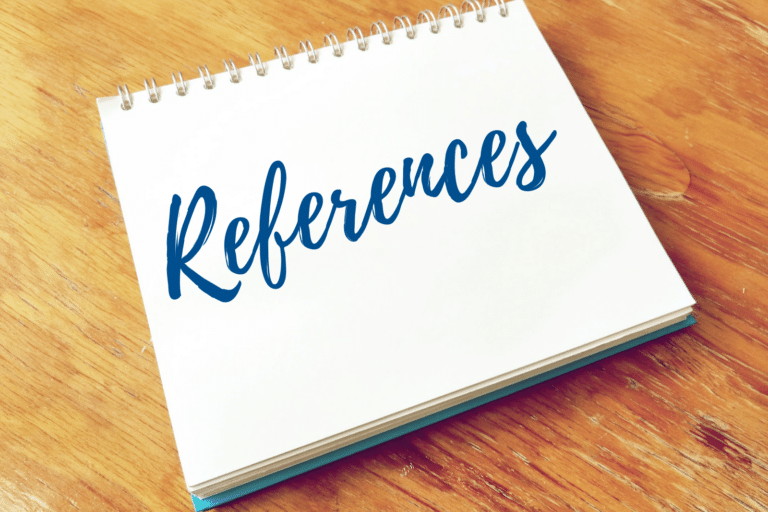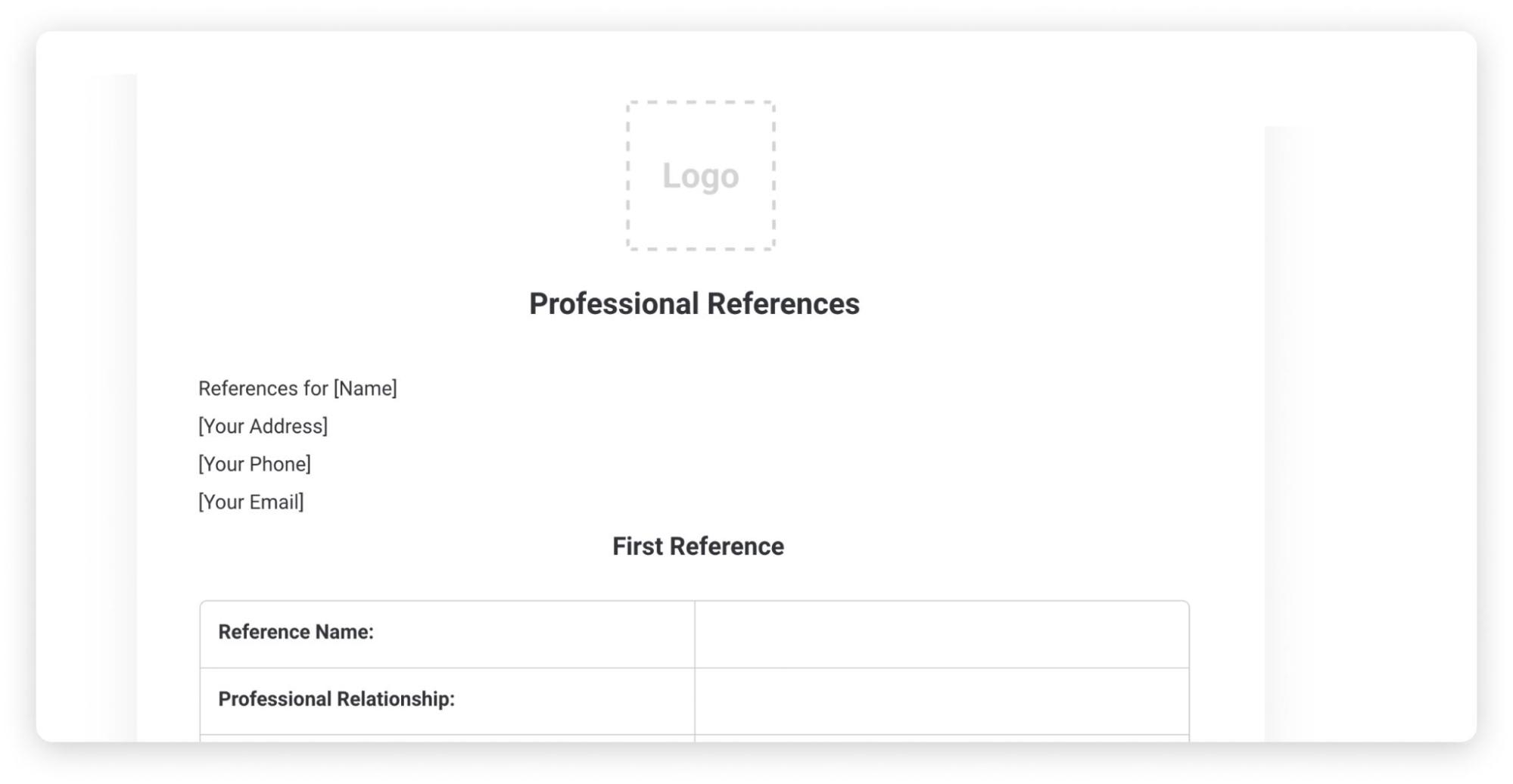Fantastic Info About Who Can I Use As A Reference

So, You Need a Reference? Let's Untangle This.
1. Understanding the Importance of References
Okay, so you're at that point. You're filling out an application, prepping for a job interview, or maybe even trying to rent an apartment. And there it is: that dreaded "References" section. It's like a mini-exam about your professional and personal life. But don't sweat it! We're here to decode the whole reference thing.
References are basically character witnesses. They're people who can vouch for your skills, work ethic, and overall awesomeness. Think of them as your personal cheerleading squad, ready to tell the world how great you are. A good reference can be the thing that seals the deal, while a bad one... well, let's just avoid that, shall we?
The goal is to provide individuals who can speak credibly and positively about your capabilities and character. This isn't about listing your best friends (unless they also happen to be former supervisors who know your work ethic inside and out). It's about selecting people who can offer genuine and relevant insights to the person requesting the reference.
But who exactly should you choose? That's the million-dollar question! We'll explore the ideal candidates, the ones to avoid, and how to make the whole process as smooth as possible. So, grab a cup of coffee (or tea, if that's your thing), and let's dive in!

How To List References On A Resume (With Examples)
The All-Stars
2. Former Bosses and Supervisors
These are often the gold standard. A former boss or supervisor can speak directly to your performance, your ability to meet deadlines, your teamwork skills, and your overall contribution to the company. They've seen you in action, which makes their endorsement incredibly valuable. They witnessed you excel, (hopefully) didn't witness you setting the office on fire by accident, and can paint a clear picture of your workplace capabilities.
Before listing a former boss, consider your relationship with them. Was it generally positive? Did you leave on good terms? If the answers are yes, they're likely a solid choice. If there was friction or unresolved issues, it might be best to explore other options. You don't want a reference who's going to inadvertently sabotage your chances.
Also, think about how long ago you worked with them. A reference from a job you held five years ago is generally more relevant than one from a decade ago, unless the role was particularly significant or the skills are highly transferable. The more recent the experience, the fresher their memory will be.
Remember to reach out to your former boss and ask if they're willing to be a reference before including their name and contact information. It's a common courtesy, and it gives them a heads-up so they can prepare thoughtful responses.
3. Coworkers (The Right Ones, That Is)
Peers can offer valuable insights into your collaborative skills, problem-solving abilities, and overall work ethic. Choose coworkers who respected your work, witnessed your contributions, and can speak positively about your interactions. The key is to select individuals who can provide specific examples of your teamwork and contributions.
Not every coworker is created equal. Avoid choosing someone solely because they're your friend. The best coworker references are those who genuinely admired your professional capabilities. Look for those you collaborated with on projects, who sought your advice, or who witnessed you go above and beyond to help the team.
Like with former bosses, it's crucial to reach out to these potential references and ask for their permission. Explain the role you're applying for (or the reason you need the reference) and highlight the specific skills or experiences you'd like them to emphasize. This will help them tailor their feedback to the specific situation.
Think about choosing coworkers from different departments if possible. This can showcase your ability to work effectively with a diverse range of people and perspectives. A reference from a coworker in a different department can also add credibility to your communication and interpersonal skills.
4. Professors and Academic Advisors
For recent graduates or those still in academia, professors and academic advisors can be excellent reference choices. They can speak to your critical thinking skills, your ability to learn and apply new concepts, your work ethic, and your overall academic performance. Choose professors who know you well and who you believe would offer a positive endorsement.
Think back to the classes where you actively participated, excelled in projects, or formed a strong rapport with the professor. These are the professors who are most likely to remember you and provide a detailed and insightful reference. Avoid choosing professors who you barely interacted with or who you suspect might not have a strong recollection of your performance.
Provide your professors with a copy of your resume and a brief overview of the role you're applying for (or the reason you need the reference). This will help them tailor their feedback to the specific requirements of the situation. Highlight the skills or experiences you'd like them to emphasize, such as your research abilities, your analytical skills, or your ability to work independently.
If you've been out of school for a while, an academic reference might not be as relevant as a professional one. However, if the role you're applying for is closely related to your academic field, or if you lack extensive professional experience, a professor's recommendation can still be valuable.

How To Format Your Professional References Johnson Service Group
Steer Clear! References to Avoid
5. Family Members (Sorry, Mom!)
While your mom might think you're the greatest thing since sliced bread, family members are generally not considered credible references. Their inherent bias makes their endorsement less valuable to potential employers or landlords. It's best to keep your family relationships separate from your professional or academic endorsements. Even if they've worked with you professionally, it's best to lean toward an alternate professional connection.
This doesn't mean your family isn't supportive; it simply means their perspective is inherently biased. The purpose of a reference is to provide an objective assessment of your skills and character, and family members are unlikely to be seen as objective. It's a rule of thumb, with few exceptions.
So, as much as you love your family and appreciate their support, it's best to keep them out of the reference pool. Focus on building relationships with colleagues, supervisors, and professors who can provide more credible and unbiased feedback.
There might be rare situations where including a family member is unavoidable, such as in a family business. However, even in these cases, it's generally best to supplement their reference with other, more objective sources, if you can.
6. Friends (Unless...)
Similar to family members, friends are generally not the best choice for references unless they've also worked with you in a professional capacity. Their personal connection can make their endorsement seem less objective. However, there are exceptions. If you've worked closely with a friend on a significant project, or if they've supervised you in a volunteer role, their reference might be acceptable.
The key is to ensure that the reference focuses on your skills and work ethic, rather than solely on your personal qualities. The reference should provide specific examples of your contributions and demonstrate how you've excelled in a professional or academic setting.
If you do choose to use a friend as a reference, be sure to clearly explain the professional or academic context in which you know them. This will help the person requesting the reference understand the validity of their endorsement.
Ultimately, it's best to prioritize references from supervisors, coworkers, and professors who can provide a more objective and credible assessment of your capabilities. Save the friend references for when you're really in a pinch and can demonstrate a legitimate professional relationship.

Nailing the Ask
7. Give Them the Details
Don't just spring a reference request on someone out of the blue. Provide them with all the relevant information they need to give you a glowing recommendation. This includes a copy of your resume, a description of the job or opportunity you're pursuing, and any specific skills or experiences you'd like them to highlight. The more information you provide, the better equipped they'll be to tailor their feedback to the specific situation.
It's also helpful to remind them of specific projects or accomplishments that you worked on together. This will jog their memory and help them provide more detailed and insightful examples of your capabilities. The more details you can offer, the more specific and effective their reference will be.
Think of it as equipping them with ammunition to fight for you. The better prepared they are, the stronger their argument will be.
Also, specify the format of the reference. Do they need to write a letter, fill out a form, or be available for a phone call? Knowing this in advance will help them prepare accordingly.
8. Timing is Everything
Give your potential references plenty of advance notice. Don't wait until the last minute to ask for a favor. People are busy, and they need time to prepare a thoughtful and effective reference. Aim to give them at least a week's notice, if possible. The more time they have, the better the reference will be.
A rushed reference is often a generic and uninspired reference. By giving your references ample time, you're showing them respect and giving them the opportunity to provide a truly valuable endorsement.
It's also helpful to set a deadline for when the reference needs to be submitted. This will help keep them on track and ensure that the reference is received on time.
Follow up with them a few days before the deadline to gently remind them and offer to provide any additional information they might need.
9. Express Your Gratitude
Always thank your references for their time and effort. Writing a reference is a generous act, and it's important to show your appreciation. A simple thank-you note or email is a great way to express your gratitude. You could even send a small gift, such as a gift card to a coffee shop or bookstore.
Showing your appreciation not only demonstrates your good manners but also strengthens your relationship with your references. They're more likely to be willing to help you out in the future if they feel appreciated and valued.
Keep them updated on the outcome of your application or interview. Let them know if you got the job or opportunity, and thank them again for their contribution to your success. This will show them that their reference made a difference and that their efforts were worthwhile.
Maintaining a strong relationship with your references is a valuable investment in your professional and academic future. They can be a valuable source of support and guidance throughout your career.

FAQ
10. Q
A: Typically, employers or landlords request two to three references. Always follow the specific instructions provided on the application or in the job posting. If no specific number is mentioned, providing three references is a good general guideline.
11. Q
A: If you lack extensive professional experience, focus on academic references, volunteer experiences, or personal references from people who know you well and can speak to your character and skills. Explain your situation to the person requesting the reference and be transparent about your lack of professional experience.
12. Q
A: Unfortunately, some employers have policies against providing references. If this happens, try to find a coworker or supervisor from that company who is willing to provide a reference. Alternatively, focus on references from other employers or experiences.
